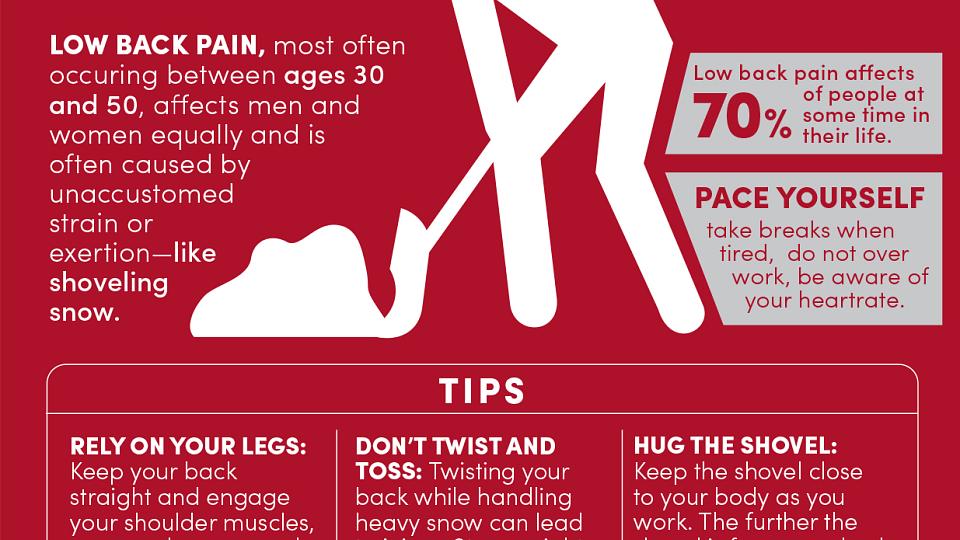
Spine Surgery (Back & Neck)
What Is Spine Surgery?
Spine surgery can be a treatment option for a number of conditions or injuries affecting the back and neck, such as:
- herniated discs,
- degenerative disc disease,
- scoliosis,
- spondylosis,
- sciatica,
- spinal stenosis,
- fractured vertebrae, and
- other causes of back pain and neck pain.
Learning about the different types of spine surgery we perform and speaking with a spine specialist at University of Utah Health can help you determine if surgery is an appropriate treatment for you.
When Is Spine Surgery a Good Idea?
Spine surgery for your back or neck may be worth considering if:
- Nonsurgical treatments—such as physical therapy, heat, medication, steroid injections, or cortisone injections—have not been effective.
- Your back or neck pain is ongoing and keeps you from being able to work or enjoy daily activities.
- We can determine the cause of your symptoms and surgery is appropriate for your condition and overall health.
Find a Spine Surgeon
Erica F. Bisson, MD, MPH
Minimally Invasive Spine Surgery, Neuro Spine Surgery, Degenerative Spine SurgeryBrent L. Clyde, MD
Degenerative Spine Surgery, Neuro Spine SurgeryAndrew T. Dailey, MD
Degenerative Spine Surgery, Neuro Spine Surgery, Minimally Invasive Spine Surgery,Brandon Lawrence, MD
Degenerative Spine Surgery, Minimally Invasive Spine Surgery, Orthopaedic Spine Surgery
Spine Surgery Procedures
Types of Spine Surgery
There are three main types of spine surgery that doctors perform at University of Utah Health for the back and neck. They are spinal decompression surgery, spinal fusion, and artificial disc replacement. Each surgery has variations that we can perform based on your unique situation.
1. Spinal Decompression Surgery
Spinal decompression surgery can remove pressure from the nerves, spinal cord, and discs in your spine. We may suggest one or more of these surgical procedures based on your condition.
- Microdiscectomy: removes all or part of a herniated disc
- Laminotomy or Laminectomy: removes some of your lamina bone to enlarge your spinal canal and/or provide access to a disc for some other surgeries
- Foraminotomy or Foraminectomy: removes bone and tissue on the side of your vertebrae to increase space for nerves
If your spine also needs stabilization, we may suggest a spinal fusion as well.
2. Spinal Fusion
Spinal fusion joins two or more of your vertebrae together in the back or neck. It can help:
- correct conditions like scoliosis,
- stabilize your spine when a herniated disc is removed, or
- stabilize your spine if you have painful motion between vertebrae.
During the surgery, we place a bone graft around two or more vertebrae in your spine. Over several months, the affected bones fuse together.
3. Artificial Disc Replacement (or Arthroplasty)
During this surgery, we replace a disc that is causing problems in your back or neck with an artificial disc. A replacement can be made of metal, plastic, or a combination of the two.
The goal of this procedure is to maintain more normal motion between your vertebrae. Because of this, artificial disc replacement can be an alternative to spinal fusion surgery in some situations. It may also help restore height between the vertebrae and room for nerve roots.
Minimally Invasive Surgery Vs. Traditional (Open) Surgery
We can perform surgical procedures for the back and neck as open surgery or as minimally invasive surgery (MIS) procedures, such as endoscopic spine surgery or endoscopic spinal neurectomy. Each approach has its own advantages and risks, which you should thoroughly discuss with your spine specialist when considering surgery.
How to Prepare for Spine Surgery
There are several things you can do to help your spine surgery and recovery be as smooth as possible. Advice may vary by doctor or procedure. However, these are some of the most common ways to prepare:
1. Take care of your overall health. To make sure you are in optimal medical condition for surgery, your doctor may suggest that you:
- have a physical exam, blood work, and other tests;
- lose weight if you are overweight or obese; and
- maintain an ideal hemoglobin A1C level, if you have diabetes.
2. Quit smoking and tobacco use. If you smoke or use tobacco products, it could put you at a greater risk of complications. It’s important to tell your doctor so you can make a plan to quit, ideally several months before your surgery.
3. Stop taking certain medications and supplements (as directed by your doctor). Your doctor may ask you to stop taking certain medications and supplements before surgery. These may include narcotic pain medication, anti-inflammatories, blood thinners, insulin, and more. You may need to stop some for several days and others just on the day of surgery.
4. Stay active. Keep moving as much as possible before surgery. Choose activities that your body can tolerate—walking, swimming, or riding a stationary bike, for example. Regular physical activity can help you:
- maintain a healthier weight that helps you recover faster, and
- reduce your risk of a blood clot or circulation issues.
5. Get support from others. Make sure you have someone available to:
- be supportive of your mental well-being before and after surgery;
- drive you home from the hospital; and
- help you after returning home—to move around, prepare food, and take care of other household needs—especially during the first few days.
6. Follow any other recommendations from your doctor. Your doctor may have other specific instructions for you. If so, it’s important to review and follow them thoroughly.
What Happens during Spine Surgery?


IV and Anesthesia
Before your procedure starts, you will receive fluids through an IV. When it's time for your procedure, you will get anesthesia through your IV to put you to sleep. Your IV may also be used to administer medication.
Positioning
We can access your spine a few different ways: from the back (posterior), front (anterior), or side (lateral). The approach for your procedure we decide on will determine how we position you and where we will make the incision(s) for your procedure.
Surgery Steps and Length of Time
The time your procedure takes depends on the specific steps your surgeon uses and the type of spinal surgery you are having. The approach, whether open surgery or minimally invasive surgery, also affects the time the surgery takes. In general, spine surgery can take several hours.
Spine Surgery Recovery
Hospital Stay
The amount of time you spend in the hospital after surgery depends on the type of surgery you have and your physical condition. It ranges from two to five days in most cases. When it’s time for you to leave the hospital, medical staff will provide you with instructions on caring for your spine after surgery.
Moving and Healing After Spine Surgery
The recovery process can be different for everyone. To make yours as smooth as possible, your doctor may offer recommendations like these for the first few weeks after spine surgery:
- Start physical therapy or occupational therapy to help you regain strength and mobility.
- Wear a back or neck brace to provide support during healing.
- Avoid twisting, bending, lifting heavy objects, and sitting for a long time.
- Take medication to reduce pain.
- Make follow-up appointments to remove stitches and monitor your progress.
During this time, you may also see an improvement in symptoms like pain, weakness, and numbness. However, recovery for some spine surgeries can take longer.
Back Surgery Success Rate
While surgery can be effective in addressing many spinal issues, there is no guarantee that surgery will relieve your symptoms. Success depends on several factors, so it is best to speak with a spine specialist about your specific situation.
Spinal Surgery Complications and Potential Risks
All surgery comes with risks, which you should discuss with your doctor. Most risks for spine surgery are rare but can include:
- infection,
- bleeding,
- blood clots,
- general anesthesia risks,
- nerve damage, or
- other procedure-specific risks.
There’s also a chance that back surgery won’t relieve your symptoms or that your symptoms may return or get worse in the future. Other diseases and your physical condition can also impact your surgery.
Next Steps
Schedule an Appointment for an Evaluation
Before we even consider recommending spinal surgery, we do a full evaluation of your unique situation. If you have back or neck pain, get in touch with us to schedule an evaluation.
We bring together specialists from both the Clinical Neurosciences Center and the University Orthopaedics Center so you can have the best possible outcome. Our specialists are board-certified, fellowship-trained, up to date on the latest medical research, and will work with you to review your treatment options and develop a personalized plan.
Meet Our Patients
Watch Amy McClosky-McGinley's Story
This is a modal window.








